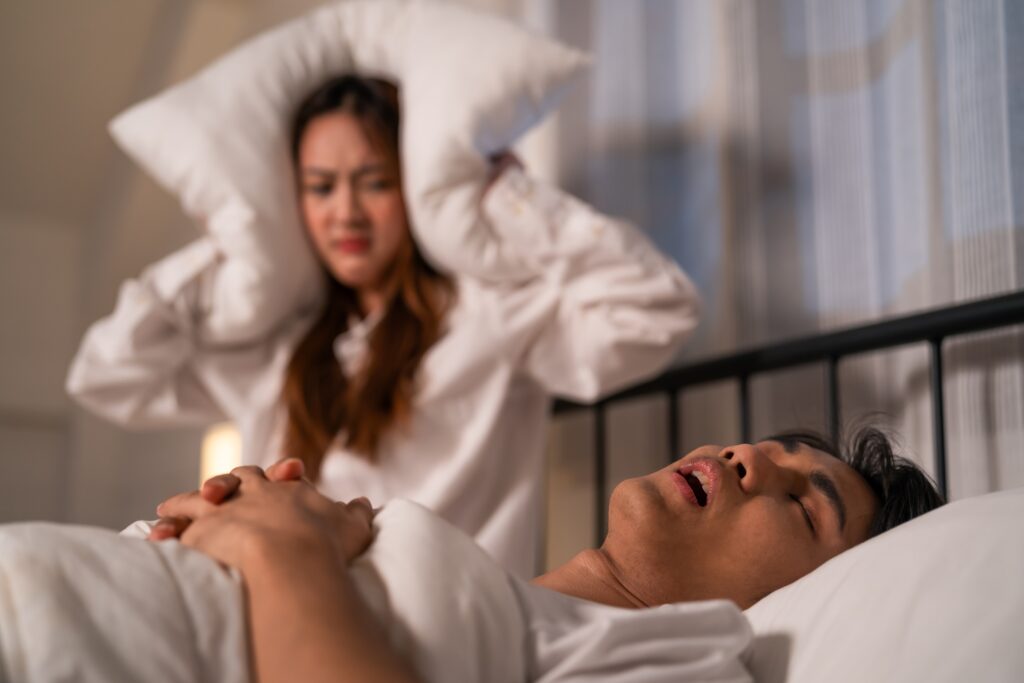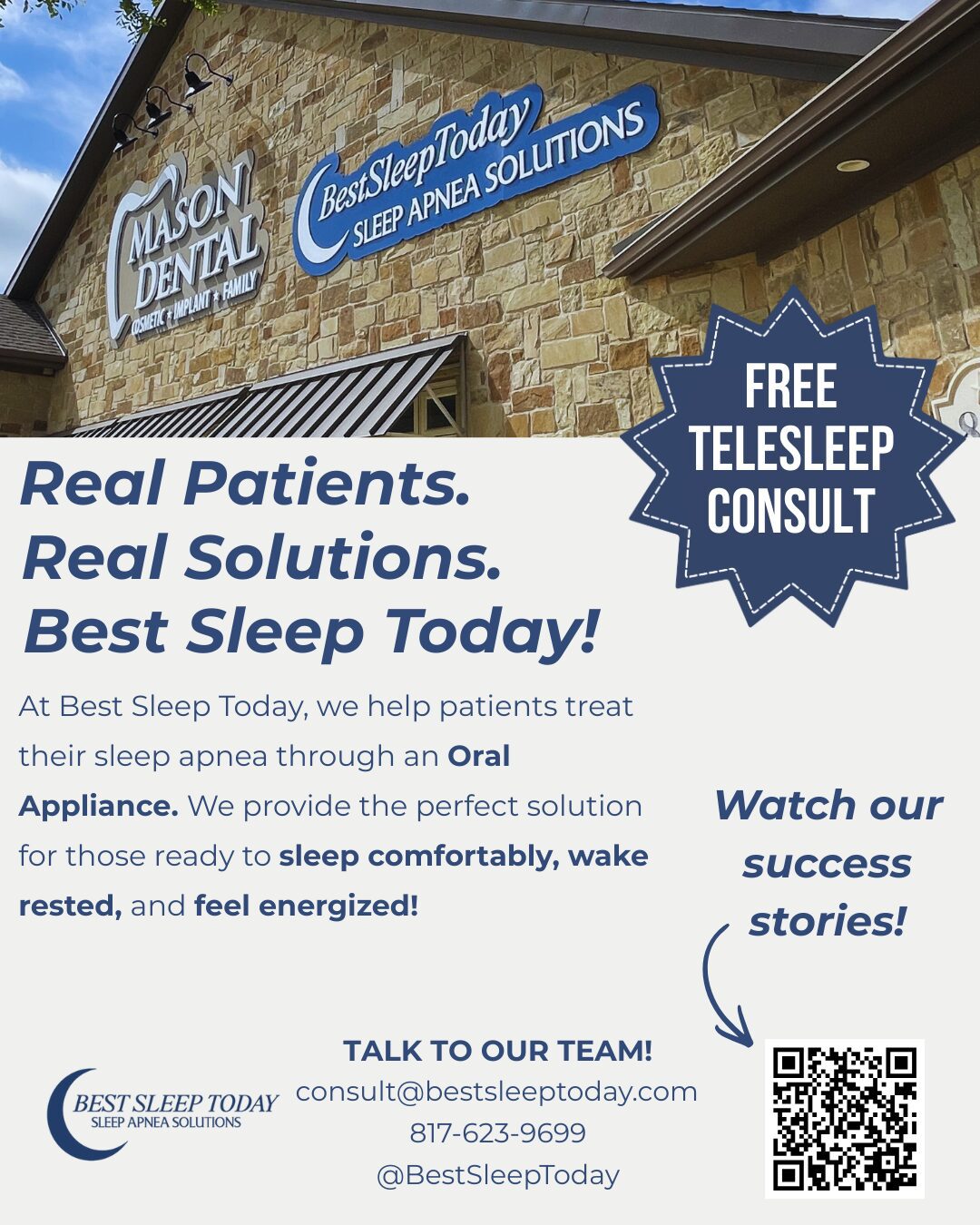That familiar rumble—snoring—is often the subject of jokes. But for many, it’s no laughing matter. While occasional, light snoring is usually harmless, loud and chronic snoring can sometimes signal a more serious underlying condition: obstructive sleep apnea. At Best Sleep Today, we help people in Grapevine, Colleyville, and Southlake get the restful sleep they deserve. Understanding the difference between simple snoring and sleep apnea is the first step toward better health.
So, how can you tell if that nightly noise is just an annoyance or a sign of something more? Snoring happens when the tissues in your throat relax during sleep, partially blocking your airway and vibrating as you breathe. It’s common and can be caused by anything from your sleeping position to allergies.
Sleep apnea, however, is a sleep disorder where your breathing repeatedly stops and starts. In obstructive sleep apnea, the most common form, the throat muscles relax so much that they completely block the airway. This causes you to stop breathing for seconds or even minutes at a time, until your brain wakes you up just enough to start breathing again. These episodes can happen hundreds of times a night, often without you even realizing it.
Is My Snoring Problematic?
Not all snoring is created equal. It’s time to pay closer attention if your snoring is accompanied by other symptoms. Ask yourself or your sleep partner if you experience any of the following:
- Loud, disruptive snoring: Is it loud enough to disturb others or even wake you up?
- Pauses in breathing: Are there moments of silence followed by a gasp or choking sound?
- Excessive daytime sleepiness: Do you feel exhausted during the day, even after a full night’s sleep?
- Morning headaches: Waking up with a headache can be a sign of low oxygen levels during the night.
- Difficulty concentrating or irritability: Poor sleep quality directly impacts your mood and cognitive function.
If these symptoms sound familiar, your snoring might be more than just a nuisance. It could be a sign of sleep apnea, a condition that can increase your risk for high blood pressure, heart disease, and other health issues if left untreated.
How Can I Stop Snoring?
For simple snoring, lifestyle adjustments can often make a big difference. Try sleeping on your side instead of your back, limiting alcohol before bed, maintaining a healthy weight, and treating any nasal congestion.
However, if you suspect sleep apnea, it is crucial to seek a professional evaluation. Self-treatment won’t resolve the underlying issue. At Best Sleep Today, our trusted expert, Dr. Scott Mason, specializes in diagnosing and treating sleep-related breathing disorders. A proper diagnosis is key to finding the right solution, which may include oral appliance therapy or other personalized treatments.
Don’t let snoring disrupt your life or endanger your health. If you’re in the Grapevine, Colleyville, or Southlake area, contact Best Sleep Today to schedule a consultation with Dr. Scott Mason and take the first step toward quieter, healthier nights.
Best Sleep Today
801 W Wall St, Suite 100 Grapevine, TX 76051
Phone: 817-623-9699



